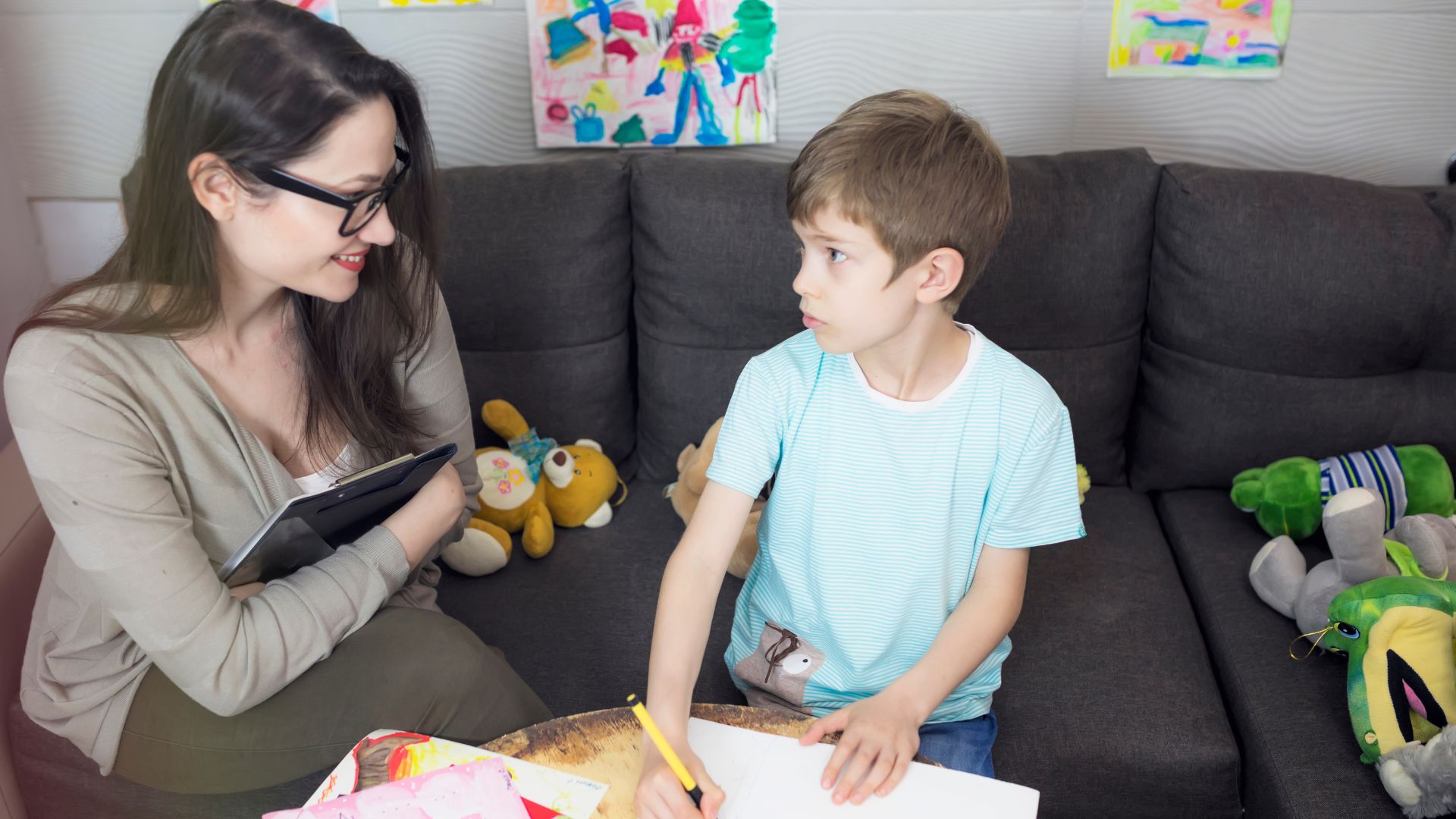Therapy for Children Under 5: Why It’s About the Whole Family

When a parent is told that their toddler or preschooler might benefit from therapy, the first reaction can sometimes be confusion or uncertainty. You might wonder: “They’re so young. What would therapy even look like?” or maybe more quietly: “Does this mean I’ve done something wrong?”. Many parents may also ask whether therapy is even appropriate for toddlers. The answer is yes – especially when it is approached thoughtfully and built on a strong alliance between the therapist and the family.
These are completely understandable responses and are more common than you may think. These questions speak to a common misunderstanding about how therapy works for very young children.
Early Childhood Mental Health Is Rooted in Relationships
Therapy for children under 5 doesn’t usually mean a little one sitting alone with a therapist. At this age, emotional development happens within relationships, especially the relationship between a child and their primary caregivers.
That means therapy in early childhood is almost always a relational process, where the parent-child dynamic becomes central to the work. We don’t treat the child in isolation, instead we support the whole system that surrounds them.
Parent–Child Therapy: A Space to Reflect and Reconnect
Some of the most meaningful shifts happen when we slow things down and look together – not just at the child’s behaviour, but at what might be happening between the child and caregiver.
That might include:
- Helping a parent understand their child’s tantrums or anxiety through an emotional, developmental lens.
- Supporting a caregiver to recognise their child’s bids for closeness or reassurance—even when it shows up as frustration.
- Exploring how a parent’s own early experiences might be influencing how they interpret their child’s needs.
This kind of therapy isn’t about blame. It’s about offering space, insight, and support.
The Role of Co-Regulation in Young Children’s Emotional Development
Toddlers and young children don’t have the capacity to manage big feelings on their own. They need help from the adults around them to calm, feel safe, and understand what’s going on inside. This is known as co-regulation, and it’s a vital part of early emotional development.
When a caregiver is tired, overwhelmed, or carrying their own stress or trauma, it’s harder to offer that steady presence. And yet, so many parents feel they should be “getting it right” on their own.
Therapy can offer a space where caregivers feel seen and supported, not judged. And when the adult feels more emotionally regulated, the child often follows.
Remember: children are often described as being emotional sponges. They absorb far more than we realise, and not just through words, but through tone, posture, and presence. They learn from how we respond to stress, how we express frustration, and how we make sense of big emotions. Over time, this modelling becomes part of their internal landscape.
When the Child Brings You In, But the Family Grows Together
Parents often seek help because of something specific: tantrums that feel unmanageable, trouble separating, sleep challenges, or signs of early trauma. These concerns are real, and they matter. But often, the Under 5s therapy journey opens up space for the entire family to grow and reconnect.
That can look like:
- Strengthening a parent’s confidence in responding to their child.
- Helping partners get on the same page about parenting approaches.
- Supporting a parent to reflect on their own emotional world so they can show up differently in moments that matter.
Therapy becomes less focused on “fixing a behaviour” and more about building emotional safety, understanding, and resilience, for both child and parent.
Why Early Support Has a Lasting Impact
Therapy in the early years doesn’t just address short-term challenges. It lays the groundwork for long-term emotional health.
When a child learns, through relationships, that their feelings are allowed, understood, and safe to share, they carry that template forward into later life. And when a parent feels more resourced, connected, and less alone, the family system becomes more resilient.
So while therapy may begin with a toddler’s tantrums or fears, what grows from it is much deeper: a more attuned, more compassionate connection between caregiver and child.
